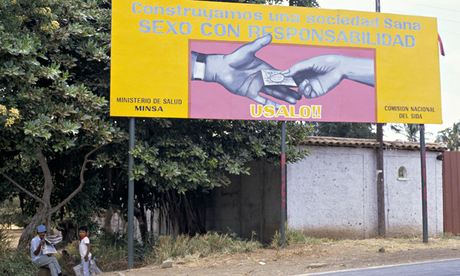
Grassroots organisations are to share in a multi-million dollar project to improve family planning and reproductive health services for women and girls in Africa and Latin America.
Groups in Uganda, Burkina Faso, Senegal and Nicaragua will be able to apply for advocacy grants as part of a three-pillar, $50m (£30m) package to support family planning services. The scheme was announced on Thursday by Bloomberg Philanthropies, set up by Michael Bloomberg, the former mayor of New York.
Bloomberg will work with the Planned Parenthood Federation of America to identify groups that could benefit from extra funding in each of the four countries. Organisations working among marginalised groups such as young people and unmarried women will be a particular focus for the scheme, which will also support agencies that lobby their governments for legislation and policies that support access to services.
As part of the package, Bloomberg is partnering with the UN Foundation to launch a rapid-response grants programme to support governments and providers in delivering reproductive health services in 69 of the world's poorest countries. This could include providing grants to pay for emergency supplies of contraceptives when there is a stockout at a health centre, or paying for specialised training for health workers.
The UN Foundation supports the Family Planning 2020 (FP2020) global partnership, which was set up as a result of the 2012 London family planning summit with the aim of increasing access to contraception for 120 million more women and girls in developing countries.
According to the UN population fund, at least 200 million women and girls are unable to access family planning services that would allow them to control when they have children and to space their pregnancies. The agency predicts that unmet need will increase by 40% over the next 15 years if action is not taken.
At the 2012 conference, hosted by the UK's Department of International Development and the Bill and Melinda Gates Foundation, wealthy countries committed $2.6bn over the next eight years to help plug the gap in poorer countries.
The four countries to benefit from the Bloomberg money, pledged to the FP2020 initiative, have high unmet contraceptive needs and, consequently, high fertility rates. According to Planned Parenthood, women in Uganda and Burkina Faso will, on average, give birth to more than six children over the course of a lifetime. Burkina Faso has a contraceptive prevalence rate of just over 16%. In Uganda, 24% of 15- to 19-year-old women are either pregnant with their first child or already mothers.
Nicaragua has the highest adolescent fertility rate in Latin America, with 109 births for every 1,000 15- to 19-year-olds. About half of young women give birth before they are 20. The country has high incidences of sexual violence, and abortion is illegal.
Kelly Henning, who heads the public health programme at Bloomberg Philanthropies, said targeting money towards local organisations was important to ensure specific country needs are met. "Local groups understand what the issues are for women and the concerns for women in these countries, and they understand the policymakers and what they are thinking," she said. "We want this effort to be sustainable."
Bloomberg, mayor of New York City from 2002 to 2013, said: "By providing critical health services closer to mothers' homes, and by empowering women to make informed choices about when they want to have children, we can help save thousands of lives."
Bloomberg Philanthropies also announced plans to expand its work in Tanzania, a country it has worked in since 2006. It will increase its support for comprehensive reproductive health services, including post-abortion care, in the 10 rural clinics with which it has existing links. Bloomberg's work in Tanzania has so far included training more than 100 physician assistants and nurses to perform life-saving operations, including caesarean sections, as well as building operating facilities.

